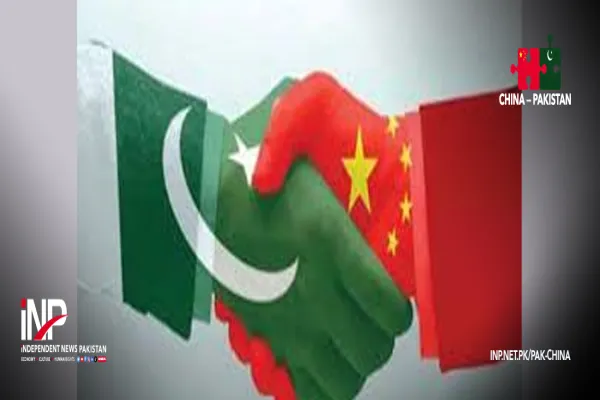i NEWS PAK-CHINA
Agri technologies from China are contributing to Pakistan’s food security, Gwadar Pro reported on Monday. Pakistan is currently experiencing an economic crisis and one of the reasons is the recent worst flood, a flood that has shaken the basic life of Pakistan. Pakistan's economy, especially life of the common people, is largely dependent on agriculture, so the entire country has been badly affected by this flood.
According to Muhammad Mehdi, Chairman of the Institute of International Relations and Media Research (IIRMR), to combat the effects of this climate change, Pakistan aspires to benefit from the technology of its neighbor and friend, China, and in this regard, the experts of both countries have come together and different types of projects are being made.
To enable Pakistan to cope with the situation, important development has been seen. CRSIR, a subsidiary of the Natural Science Foundation of China, and Lasbella University of Agriculture, Water, and Marine Sciences have developed a joint project - "Assessment and Regulation Mechanism of Climate Change in Water Energy Food Linkage in Tropical Region of China and Pakistan".
CRSIR has vast experience in water conservation and water cycle patterns and the Pakistani university wants to take advantage of the experience and expertise of CRSIR to introduce the project to prevent further damage in Pakistan. It should be kept in mind that this is the second such project and only one such project was approved in the last two decades. It’s important for Pakistan to examine what impacts climate change could bring to Pakistan's hydropower and food supply and how they can be protected and developed.
This project covers all these needs. Along with the further development of these natural resources, it will also bring forward how these natural resources can be protected. To achieve this goal, the Chinese and Pakistani institutions will cooperate in science and technology, and China will not only provide the technology to the Pakistani institution but also use this technology and scientific research more effectively in Pakistan. China will also provide its staff.
We are witnessing a successful demonstration of scientific research and technology transfer in Pakistan regarding food security from China. Climate change has adversely affected food sources in Pakistan and Pakistan has to import more of these commodities from countries of the world, in which soybean is an important species.
However, the problem with soybean is that it cannot be cultivated on a large scale in Pakistan due to the climate and therefore a lot of foreign exchange is spent on its import. In this regard, Pakistani experts are moving towards benefiting from China's intercropping technique.
A name is being heard in the scientific circles of Pakistan at the moment. He is working very hard on this technology and he is Dr. Ali Raza who is affiliated with Islamia University Bahawalpur and has also recently graduated from China's renowned Sichuan Agricultural University.
At this university, he has acquired knowledge of the intercropping technique of different crops and now he is using his knowledge in soybean intercropping and introducing it. One of the reasons why soybeans are not cultivated in Pakistan is the weather. Apart from this, there is also the problem that it is considered to compete with maize and farmers do not want to cultivate this crop in place of maize. Through this intercropping technology, both crops can be cultivated together.
It should be noted that this will not only make Pakistan self-sufficient in soybeans, but Pakistan will also be able to earn at least USD 3 billion annually by exporting it. Through this technology, a high-yielding soybean seed will also be developed in Pakistan.
There is great joy in Pakistan that Chinese institutions will entrust their expertise and staff to Pakistani experts. Because people here are seeing the excellence of the graduates of Sichuan Agricultural University and hope that with China's cooperation, more experts will be prepared to help Pakistan achieve the goal of self-sufficiency in food and fight the effects of climate change, the report added.
Credit : Independent News Pakistan-INP









